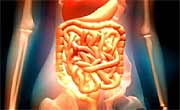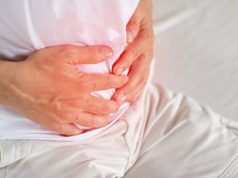Stem cells, fecal transplants show promise but more research needed
FRIDAY, April 10, 2015 (HealthDay News) — Two experimental therapies show promise in management of Crohn’s disease.
David Suskind, M.D., a gastroenterologist at Seattle Children’s Hospital, led one new study which found that fecal transplant appeared to induce remission of Crohn’s symptoms in seven of nine children treated within two weeks. Five were still in remission after 12 weeks, with no additional therapy, the researchers reported in the March issue of Inflammatory Bowel Diseases.
Suskind told HealthDay that the findings are only preliminary, and his team is conducting a trial that includes children who do not receive a transplant. “The preliminary data is promising,” Suskind said. “But research into how to manipulate the intestinal microbiome is still young. There are many things we don’t understand yet.” It’s possible, according to Suskind, that for some Crohn’s patients, one fecal transplant could quickly alter the gut microbiome, and from there on, a careful diet could help maintain the benefit.
In the other study, published online March 31 in Stem Cells Translational Medicine, researchers in Korea used adipose-derived stem cells to treat a serious complication of Crohn’s: fistulas. They took adipose-derived stem cells from the patients and then injected the cells, combined with glue, into the fistula during surgery. Of 36 patients who were followed for two years, the researchers found that 75 percent were still doing well, with the fistula completely closed.
Full Text – Inflammatory Bowel Diseases
Abstract – Stem Cells Translational Medicine
Full Text (subscription or payment may be required)
Copyright © 2015 HealthDay. All rights reserved.








